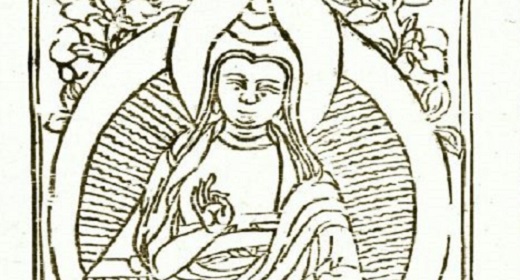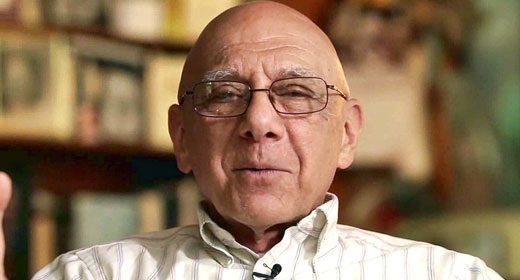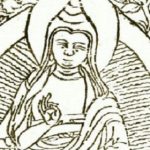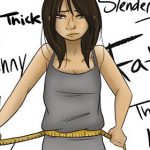by Ananda Giri: I am certain most of us would concur with the view that ‘suffering’ has been one of humanities biggest challenges.
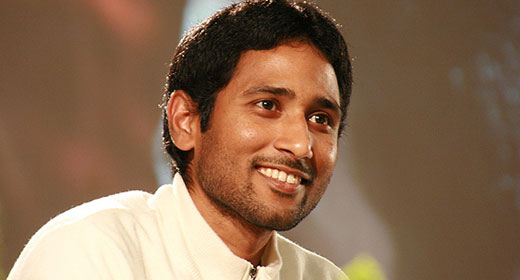
By ‘suffering’ we are referring to the psychological pain we experience in its varied forms; as fear, hurt, disappointment, anxiety, shame, regret, etc. It is this psychological discomfort, we fear more than anything else. Of course no one likes physical pain either and we do our best to prevent it from happening, but it is the disturbed state of mind that scares us the most.
How do we habitually respond to this challenge called suffering?
Not knowing how to deal with suffering we are constantly finding newer and newer ways of distracting ourselves from this pain. We have even invented ideas like ‘suffering is good for us’, ‘life is not a bed of roses’, ‘it is meant to be’, ‘It is a divine plan’, ‘God wants us to suffer’, ‘suffering is God’s way of showing how much He loves us’. How do we even know that suffering is good for us or that it is a divine plan and yet we take refuge in these baseless beliefs.
We are prepared to engage ourselves in any activity, physical or mental, that can provide us a distraction from our psychological discomfort. We are ever so ready to embrace any view no matter how irrational or baseless it is, if it promises to provide us some solace. Some of us have even made ‘suffering’ a sacred thing, believing suffering to be the only path to salvation or enlightenment. Although deep in our hearts we know these ideas to be utterly baseless, we are still scared of questioning them because we are afraid that we might loose the little comfort they keep providing us. We refuse to enquire because we are terrified of facing this monster called ‘suffering’. If we realized the falseness of these beliefs, it would then become impossible for us to take refuge in them any longer and we may not want that to happen.
I am sure we are aware that all the comfort found through the various forms of distraction, whether physical or mental is only momentary and that this pain would resurface again. Every time this psychological pain resurfaces, we have to again put ourselves through the same mental exercise of having to find newer ways to distract ourselves or keep inventing new ideas that will buy us some more comfort. In some cases we have made suffering such a noble thing, we glorify it and do nothing about it. This whole exercise of pain management can become so tiring and eventually reduce our entire life to a mere act of ‘suffer management’.
It is agreed that suffering is a very unpleasant state to be in and that no sane human being would desire to be in that state, however should we spend the entirety of our life on planning how to avoid, ignore or run away from this suffering? We certainly can learn how to dissolve this pain when it arises. Management is not the only way to deal with suffering, one can also learn how to move from this conflicted state of mind to a place of calm and joy. This transformation becomes possible when one brings total attention to this entire movement of suffering as it is happening.
Every year the teachers at One World Academy undertake service projects, which involve visiting areas that have been affected by natural disasters to offer their support. One such trip we made in recent times was to the Gulf States in the USA. It was during the summer of 2010 when the oil spill nearly wiped out both the fishing and tourism industries that were the prime economic engines here in this part of the world. We planned a ten-day road trip covering nearly 2500 kilometers starting at New Orleans in Louisiana to Tampa Bay in Florida. We drove through countless small towns meeting many people along the way. We did not want to meet with people in organized groups, instead preferring to meet with individuals and families in their own homes, which is where they felt most comfortable to share their story of pain. And so we kept it more spontaneous, knocking on the doors of various homes and working with those individuals and families that let us in. Nearly everyone that we approached was kind enough to welcome a bunch of strangers like ourselves in to their homes.
But why were we doing this road trip? What was the intention with which we visited these places? What were we hoping to achieve?
Every time we are confronted with challenging conditions in life, we experience a lot of fear and uncertainty during these periods and we begin to believe that until our conditions have changed, we are not going to be able to regain that happiness we once experienced. But what if those conditions never changed or if it took ten long years for those conditions to transform, does it then mean that for the next ten years or for the rest of our life we will have to live in misery. If this were really true, it means we have no freedom whatsoever to choose our inner experiences. If this is the case then there certainly is a serious flaw in this universe and this can’t be true. Our inner state of being cannot be determined by some work of fate.
It may be true that we cannot prevent suffering from happening but we can most certainly learn how to dissolve this pain when it arises. It is with this vision that we set out on our ten-day road trip, to challenge the view that suffering is a result of our life conditions. We at One World Academy believe otherwise, that suffering is a result of the meanings we attach to our life situations and not a result of the situations themselves. Our intention for this trip was to help at least a few people make this shift and train them to be able to help others in their community.
We were not visiting these beautiful people to just give them some hope that everything would be okay soon, instead we would actually teach them the art of moving from a place of suffering to a place of inner calm. Hope is comforting but it is only a first aid and not a total cure. One cannot live in hope for ever, then the very purpose of hope is defeated; hope towards what end, for a freedom that is never going to happen or a reward that will be experienced only in the after life. Our intention was not ‘hope’ but a ‘freedom’ that could be experienced in this very moment. If we learnt how to free ourselves from suffering, then we would never be afraid of suffering or wait for our conditions to change to find happiness again.
It is with this deep passion that we went around knocking on people’s doors. When some one opened the door for us, we introduced ourselves as teachers from One World Academy and also mentioned to them that we were here to teach them how to be happy. There were all kinds of reactions to our sudden appearance at their doorsteps, from extreme skepticism to overwhelming gratefulness, the most common reaction being “did you really travel ten thousand miles to teach us how to be happy?”
One such door that we knocked on was opened by an African American gentleman by the name of Joseph who welcomed us into his home. Joseph was in his mid fifties when we first met with him and he lived in Baton Rouge, Louisiana. He walked us to his living room, offered us a glass of water and promptly put four paintbrushes in our hands asking us if we were ready for the job. Obviously he didn’t know the reason for our visit, nor did we get a chance to introduce ourselves. It is not until a few minutes after we entered his home did we realize that Joseph’s vision was impaired.
Joseph had served the US military during the Vietnam War and subsequently lost his eyesight. We were quite impressed with the way he carried himself around giving very little clues that he was blind. A group of teenagers had volunteered to do the paint job for his home and he was expecting them to show up. Instead, we appeared at his doorstep and he mistook us for those teenagers. When he finally realized that were not those teens that he was expecting, he felt a little embarrassed but anyways handed to us a bucket full of paint asking if we would be willing to assist him with the painting job.
We were of course very happy to help him with any kind of assistance he needed to improve the appearance of his home. He walked us though the tiny kitchen that led to his backyard. We started painting the walls on the rear side of his home facing the back yard. The lawn in the yard was well kept except for a few dry patches, which again was quite impressive. Joseph at last looked settled and it felt appropriate that we introduce ourselves now. Joseph’s reaction to our introduction was the same popular one “did you really travel ten thousand miles to teach me how to be happy?”
Although he believed in our intention, he appeared very skeptical about its possibility. And thus began our three hour long conversation of which he spoke for most of the first two hours trying to convince us about the impossibility of finding that peace or happiness given his life conditions. Often during his speech, he would mention, “you will never know what it is to be blind and the suffering a blind person has to go through”. While we empathized with his condition, we expressed our disagreement to his remark that it would be impossible for him to find that peace.
Finally after nearly two hours of his speech, we interrupted him saying may be it is now our chance to say something. He at once became quiet allowing us to say what we had to say. I put my hand on his heart and said to him may be it is better if he listened to us from this place instead of his mind that has already presupposed the impossibility of finding happiness.
If we began our search for happiness by assuming its impossibility, then every step we take would only strengthen the belief in its impossibility. Instead it might be more rewarding if we began our search for happiness with the assumption we are likely to find it. Although it is still an assumption, it certainly is a better assumption, which gives us a better shot at happiness.
If Joseph had to make a shift in his state, only he could make that happen. No one can magically transform another’s life. He had to enquire in to his suffering and arrive at the right insight himself, which would then set him free. I cannot and was not willing to answer questions for him; he had to find answers himself. At best I could help him ask the right questions. So we started to go on a journey of enquiry; enquiring to find out if suffering is situation dependent or not.
We live in a world with well over seven billion people and we know that not all the seven billion are subject to similar life situations. Our life conditions vary from being widely different to even contrasting and so is the case with our inner state of being. Some of us are happy, peaceful and forgiving while others are deeply unhappy, complaining and hateful.
What makes one a happy person and the other an unhappy one? This was the question we stayed with while we enquired.
We asked Joseph if he could imagine the world we lived in for which he responded saying that he was already doing it and that he saw all kinds of people in there; rich people, poor people, healthy people, sick people and people with physically challenged conditions. And so we started to reflect on the different life conditions a person can be subjected to and some of the possible inner reactions a person could experience in response to their respective life situations. We narrowed our search to some of the more obvious life conditions and to be more specific, six different conditions.
First condition and the possible reaction
There are several million among the seven billion that are abundantly rich, have all they need and yet are unhappy within. We waited for Joseph’s response and he concurred with us on this one.
Second condition and the possible reaction
Again there are several million among us who are very well to do, have all they need and who are also happy within. Being rich does not automatically make one’s life miserable; this is a highly questionable religious myth, which needs to be enquired in to. Joseph saw the truth of this possibility as well and so we moved on.
Third condition and the possible reaction
There are several hundred million among us that are relatively poor and are deeply unhappy with in. Joseph agreed with us on this one too.
Fourth condition and the possible reaction
There are several hundred million living in utterly poor conditions with very little or even nothing and yet are happy within. After a few quiet moments Joseph responded saying that some of his friends were really poor but happy at the same time.
Fifth condition and the possible reaction
There are hundreds of millions living with physically challenged conditions or diagnosed with chronic illnesses that have no cure, who live blaming someone or something all the time and live in a very disturbed state of mind. Joseph identified himself with these people and even remarked; “of course it is true. How can we not suffer if life is so harsh to us?”
Sixth condition and the possible reaction
There are again several hundreds of millions among us that are blind, mute, and sick with incurable ailments and still find themselves to be in a peaceful and happy state. It took a while for Joseph to respond to this one but in the end responded saying “yeah, it is true but how is that possible?”
We now approached the end of our reflective meditation as our friend Joseph enthusiastically asked us; “So what do we do now?”
Now was the moment to ask the actual big question, Similar or identical life circumstances but very dissimilar or even contrasting inner states of being; two well to do people and one is happy and the other unhappy, two sick people and one is happy and the other unhappy, two poor people and one is happy and the other unhappy. How can a similar life situation cause two entirely different states of being?
Could it then mean that it is not the situation that is responsible for what one experiences within? If it is not one’s life condition that determines one’s inner state of being, then what is it that defines one’s inner state of being? The question to ask would be: “Is the happiness or unhappiness I experience within, dependent on my life situations themselves or is it a result of the meanings I attach to those situations?
“IS SUFFERING SITUATION DEPENDENT?
And so the big question was asked to Joseph:
WHAT SEPARATES HAPPINESS FROM UNHAPPINESS?
After several minutes of quiet reflection, Joseph beams a big smile and he speaks. He speaks great wisdom, certainly one of the wisest words I have heard in my many years of travel. He says: “WHAT SEPARATES HAPPINESS FROM UNHAPPINESS IS A THOUGHT.”
How absolutely true is that! Is happiness not a result of the reaction experienced in one’s mind to a particular event? Is unhappiness not the result of a reaction experienced in one’s mind to a particular life situation? To every situation that happens to us, there is a very definitive reaction in our minds. This reaction experienced in thought is either happiness or unhappiness.
One of our dear friends who travelled with us on this trip and who in fact was instrumental in making this trip happen walked up to Joseph with an iPhone saying to him “there are so many blind people like yourself living in this world believing that they could never be happy. Is there something that you would like to share with them?” Joseph again with a big smile spoke to the camera saying “I am happy and I have learnt how to be happy” and when asked if there is anything else he would be interested in sharing, he said; “I want to be a teacher like the one’s here from One World Academy. I would like to be able to help people in my community to find inner peace and happiness”.
This is the story of the lovely African American gentleman from Baton Rouge who shifted from a state of suffering to a place of service. You can find some of Joseph’s videos on healingthegulf.org or on YouTube. During the following summer, we had plans of visiting Joseph and the many others we met on that trip and train them to be able to help others but our plans had to change because we needed to pay a visit to Tuscaloosa, a small town in Alabama that was hit by a massive tornado in the summer of 2011.
It may be true that all of us do not have that same equal opportunity to be equally rich or to live an equally comfortable life for that might be dependent on many factors outside of our control but every one of us most certainly share an equal opportunity to find happiness as this inner state of being is not determined by any of our external circumstances. So, yes it is absolutely possible for every single one of us irrespective of our gender, age, religion, class, culture or creed to live a life free of suffering. Suffering is a choice and will always remain so. In bringing total attention to ones suffering, it becomes evident that suffering is only a choice and that one can choose to step out of it.
Is the happiness or unhappiness we experience dependent on our life circumstances or is it a result of the meanings we attach to them? Is the quality of our life determined by our life situations themselves or is it defined by our responses to them? I would say the journey to freedom from suffering begins with an honest enquiry in to these questions.
Suffering does not happen by chance nor is it the work of fate, it a result of our own thinking processes. By bringing total attention to our every reaction in thought, it is indeed possible to free ourselves from this suffering. We live in a free universe and no one or nothing dictates the fate of our inner state of being.
Ananda Giri is the Senior Faculty Teacher at One World Academy


